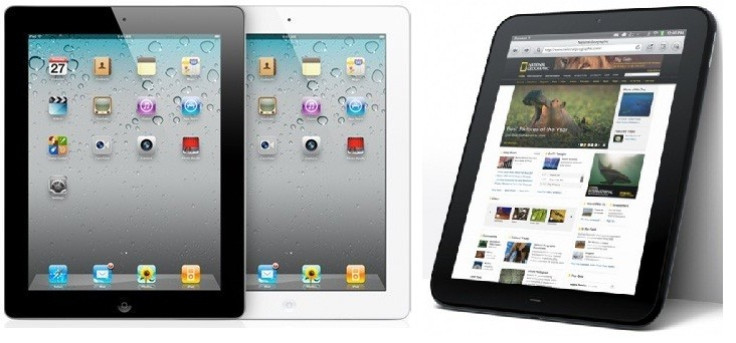Analyst Predicts Tough-Time For Galaxy Tab 10.1 As Apple iPad 2 Dominance Grows

In a new Q&A session, IHS-iSuppli analysts have suggested that tablets running Google's Android operating will continue to struggle to compete against Apple's already established iPad series in the foreseeable future.
Speaking to CNET earlier this week senior analyst of competitive analysis for IHS-iSuppli, Wayne Lam commented that in the current market, other tablet makers can't compete with the design efficiency of Apple's iPad series.
Lam went on to clarify that this is mainly due to the uniformity of Apple's designs, with the company creating both the product's iOS operating system and hardware design.
Later on in the Q&A when asked about future iOS, Android tablet market shares, Lam commented:
"Of course, Android can now run Flash and you can browse the Web like what you get on your desktop [PC]. And this is only the first year that they responded. So, next year perhaps [the Android camp] will be a little bit more competitive."
Later adding: "But if you're talking about the here and now. Last Christmas season, this Christmas season, pretty much all iPad."
Further into the Q&A Lam reiterated his belief that Windows forthcoming Windows 8 tablets may provide a more sold competition to the iPad commenting: "When you think of tablets, you really have to look long term. Windows 8, what's going to happen there?"
Lam cited his claims on a lack of cohesion and over-emphasis on tech-spec rather than design innovation by Google, commenting: "All of the major [Android tablet] makers spent this past year directing all of their efforts toward finding the right mix of components."
Adding: "It's a post-PC use case. You're not bounded by performance. You're bounded by user interaction. I don't think a user can distinguish a performance difference or get a sense of the speed of the hardware by using it. It's a different metric."
Both Apple and Google declined to comment when asked for an opinion on Lam's comments.
© Copyright IBTimes 2024. All rights reserved.





